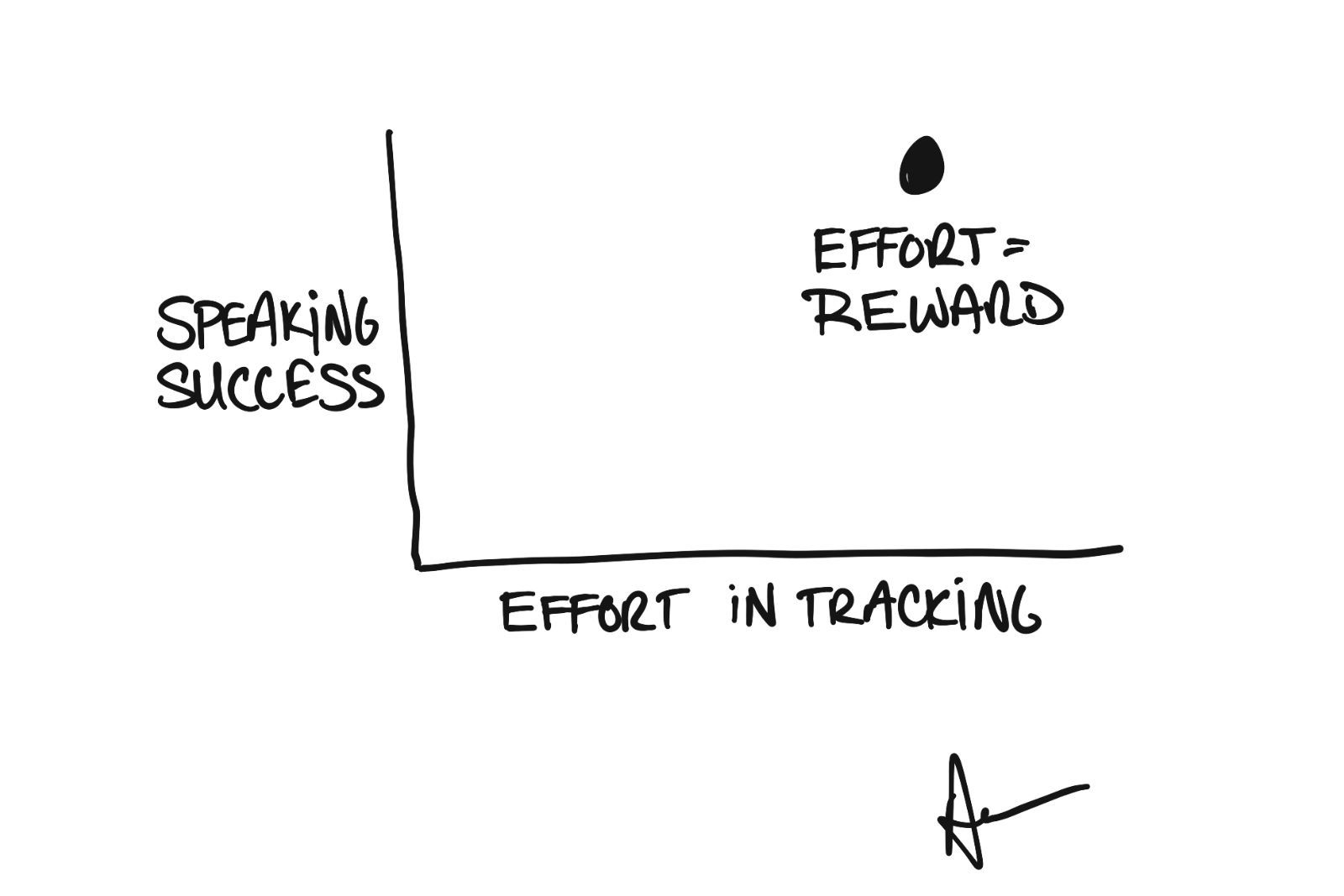Knowledge is power.
So when you take the time to track essential data for your speaking career, you’re giving yourself the power to grow your business.
To be honest, most other speakers don’t bother to track these numbers. But if you decide to take the plunge, this set of data can help you manage your business better… so you can be MUCH more successful as a speaker.
And, that’s why you’re here, right? 😀
It’s time to dive into ten more numbers you’ll want to track for every single gig. Let’s start by revisiting one of the points I quickly mentioned yesterday… fees.

1 - Final Fees for ‘Won’ Gigs
Recall that you’ll want to track the status for every single gig that gets entered into your system… yes, even the ones that fizzle out without resulting in a booked speech.
When you do this, you’ll get a feel for your current level of demand within the marketplace and how your fee negotiations are working (or not working.)
Specifically, you should write down the final fees you earn from any gigs you win. Chances are you’ll give your event organizer an initial Quotable Fee to kick off the conversation. Then, during the client theme call, you’ll negotiate down to a lower fee (removing some items from your list of offered services), and settle on a final fee for that gig.
Record this number – and over time – you’ll be able to determine an average fee for all of your won gigs.
This average fee is VERY useful because it makes it easier to set goals. You’ll know about how much you’re earning and how you should raise or lower your fees in order to increase your yearly revenue.
2 - Final Fee for ‘Lost’ Gigs
The second part of that equation is your final fee for lost gigs. These are the gigs that didn’t end up getting booked. Just as with won gigs, you can calculate an average fee for all of your lost gigs over time.
This is a really good number to know because you’ll want to know the difference between the two averages – won gigs and lost gigs.
Maybe the data will tell you that you’re quoting too much and maybe you’re losing a lot of gigs because of price. The main idea here is that you’ll want to keep track of your fees over time so you can gain a deeper understanding of what fee is working for clients and what isn’t.
Adjusting your fee up or down for a specific speech might be the key to closing many more gigs and increasing your revenue overall.
3 - Reasons for ‘Lost’ Gigs
While we’re on the topic of lost gigs, go ahead and make note of why you lost any given gig. Common reasons would include:
- They changed the agenda,
- They chose another speaker (or speech),
- They changed the date of the event,
- You’re unavailable,
- Or your price was too high.
Price is really important to note because if you start losing a lot of gigs because they can’t afford you, you’ll see that the average lost fee is always higher than the average won fee. Again, you may need to quote a lower fee to win more gigs.
By the way, if you didn’t bother to track any data for lost gigs – and only bothered to track for won gigs – you would be completely clueless about why you’re not winning more.
Ah ha! See the power of data?
4 - Referral Gigs
Remember our post about the speaker referral tree?







